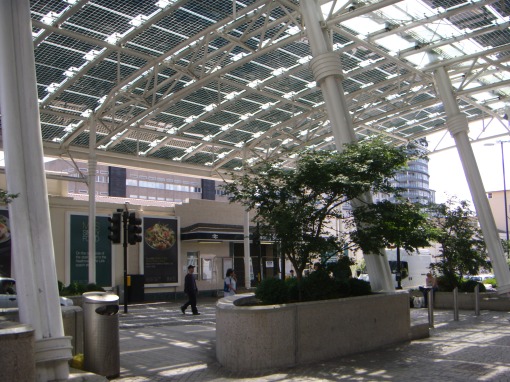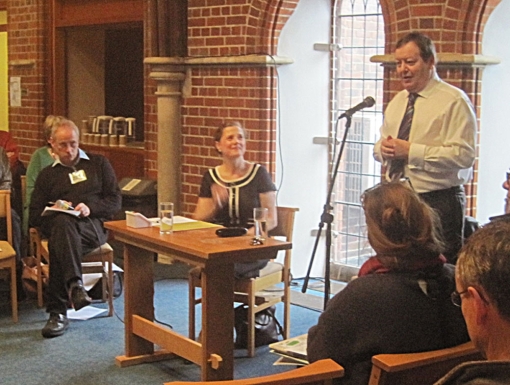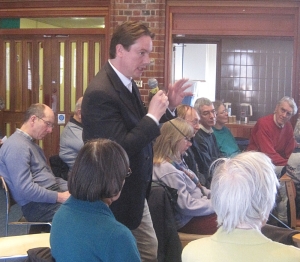
This is big news. The likely demolition of the notorious Canopy in Albion Square outside Woking station comes as a shock – but is also not that surprising. The out-of-place structure has dwarfed, darkened and overshadowed its surroundings since its construction just nine years ago – and any environmental claims made for it at the outset have long since been discredited, and held up to ridicule.
In 2007 Woking council hailed its photovoltaic panels intended to generate solar energy as “an invaluable source of renewable energy for decades to come” – and even Prince Charles came to have a look. However, critics who said that it would never generate the levels of power promised were soon proved right.
In 2009 a national newspaper claimed “the £4m project … produced only enough electricity in one year to power a single 100-watt lightbulb for just 59 days”. At the time the council said it was confident that the Canopy would eventually hit its green targets, and blamed “inclement weather” for its initial poor performance.
At a public meeting in 2013, Woking’s chief executive, Ray Morgan, conceded, with refreshing candour, that the Canopy had been “a disaster in its implementation”. But he also claimed, more surprisingly, that “it was never an environmental project. It was meant to be part of a scheme to provide a gateway to Woking at the station. But the private sector walked away from the project. We have learned lessons from that.”
The Canopy had been described as the “gateway” to the town when it was hoped developers would help reshape Albion Square around it. Now developers think the only hope for a future Albion Square is to knock the “unsightly” structure down. A planning application says its demolition “would significantly improve the quality of the public space at Albion Square and the arrival experience into the town centre”.
The saga of Woking Canopy, quite frankly, makes one question the thinking behind any future huge project unveiled by the council, which is understood to have amassed enormous levels of borrowing over recent years – borrowing that it always seems to justify as investment in the future. Have councillors actually been operating proper levels of scrutiny that we expect of them? Or just agreeing to such mega-projects on the nod?
Whatever lessons may or may not have been learned from the Albion Square debacle, some “gateway” the Canopy turned out to be. It is a modern-day folly, and has proved a scandalous waste of money. The Local Government Ombudsman should be asked to investigate the whole affair.

